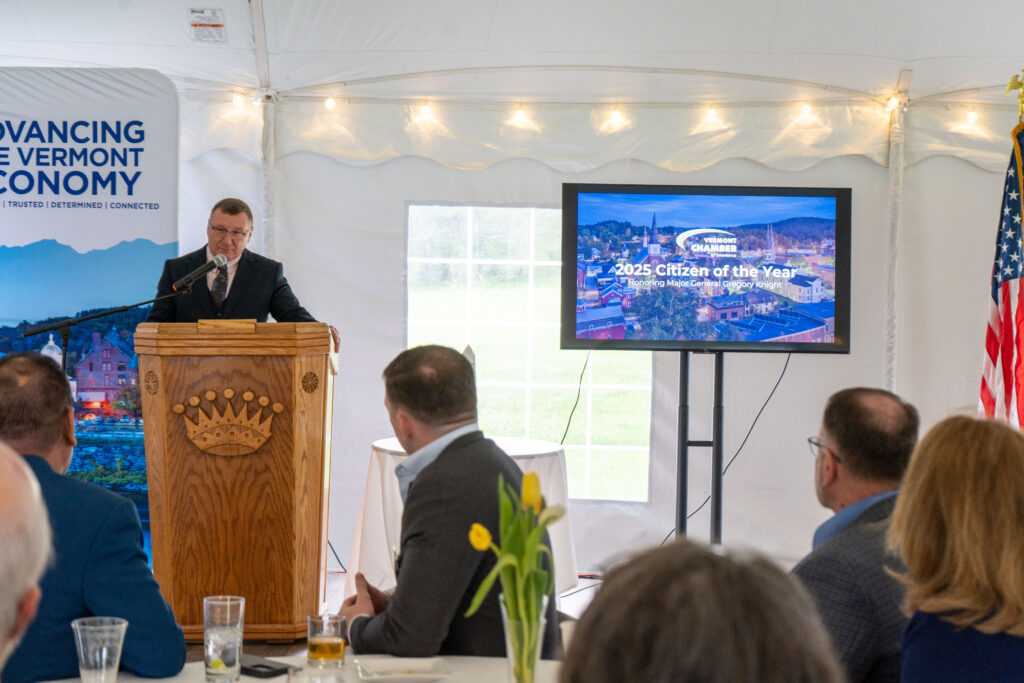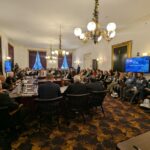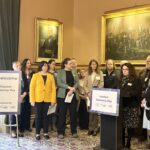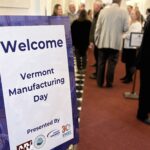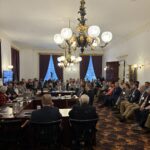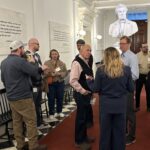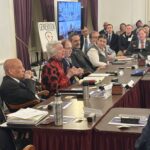Vermont Chamber of Commerce Announces Winner of the National Civics Bee® Vermont Competition
Barre, VT (June 30, 2025)—Last Wednesday, June 25, the Vermont Chamber of Commerce hosted the 2025 Vermont State Civics Bee at the historic Barre Opera House. The National Civics Bee, organized in partnership with The Civic Trust® of the U.S. Chamber of Commerce Foundation, is a nationwide competition designed to encourage young Americans to engage in civics and deepen their understanding of the U.S. government, Constitution, and civic responsibilities. Open to middle school students, the Bee challenges participants through a series of local, state, and national competitions that include essay writing and live quizzes. By fostering civic knowledge and participation, the National Civics Bee aims to inspire the next generation of informed, responsible citizens and leaders.
“Our communities are built on the foundations of civics. By hosting the first ever Vermont State Civics Bee, the Vermont Chamber of Commerce wants to help students in our state appreciate the importance of civics in our everyday lives,” said Vermont Chamber president, Amy Spear.
“We are facing a civics crisis in America. Surveys show that 70% of adults cannot pass a basic civics quiz, and 79% of 8th graders fall below proficiency in civics. This threatens the strength, prosperity, and resilience of our nation. The National Civics Bee is dedicated to enhancing civics knowledge, skills, and disposition among young people and adults alike, inspiring the next generation to make a positive impact in their communities.” said Hilary Crow, Vice President, Civics, U.S. Chamber of Commerce Foundation.
After a distinguished panel of national judges reviewed the essays, the top essay finalists from the first-round civics essay competition were selected to advance to the local competition, with the top ten students invited to compete at Wednesday’s statewide competition. The live event, emceed by WCAX’s Darren Perron, featured two rounds of civics questions followed by a Q&A round to test their civics knowledge. Marshall M. from Burke Town School took first place, followed by William B. of Christ the King School, Taylor P. of Miller’s Run School and Damien S. of Burke Town School for second, third, and fourth places, respectively. The judges for this year’s competition were: Megan Sullivan, Vice President of Government Affairs at the Vermont Chamber of Commerce, Robyn Palmer, Director of Civic and Voter Engagement for the Office of Vermont Secretary of State, and Martha Deiss, the Agency of Education’s Global Citizenship Specialist, overseeing K-12 Social Studies, World Language, and Financial Literacy.
The finalists impressed the judges with their eloquence and critical thinking, their ability to identify problems in their communities and identify solutions, and their commitment to improving the nation’s future alongside other bright and engaged youth.
First place winner Marshall explained: “I am so happy to be getting my message across and be getting out into the world…I am a proud Vermonter and an ashamed American, and I want to make sure America is not straying away from its core beliefs.” His essay topic focused on voter representation and the electoral college system.
The finalists and top winners received various prizes, including $1,000 cash for the first-place winner. The first-place winner of the Vermont competition also earned a trip to Washington, D.C. to compete in the National Championship later this fall. Prizes at the National Championship include a grand prize of a $100,000 529 plan for first place, $25,000 for second place, and $15,000 for third place.
For more information on the National Civics Bee, visit: National Civics Bee – The Civic Trust®.
First photo below (left to write): William B., Damien S., Marshall M., and Taylor P.








SHARE THIS ARTICLE
RECENT NEWS



